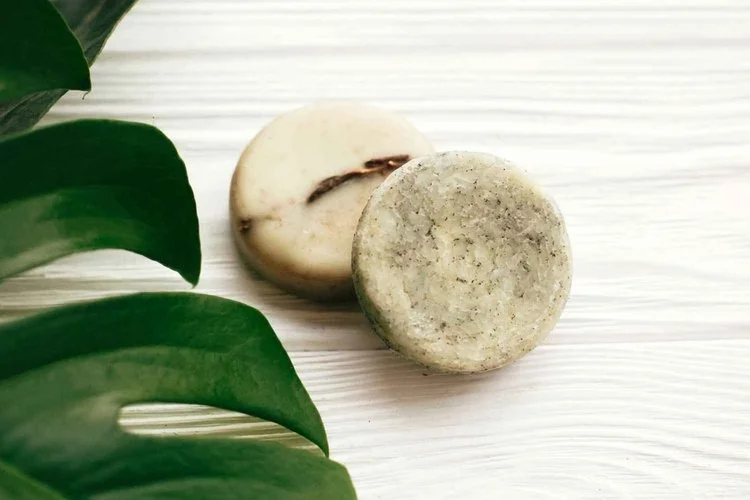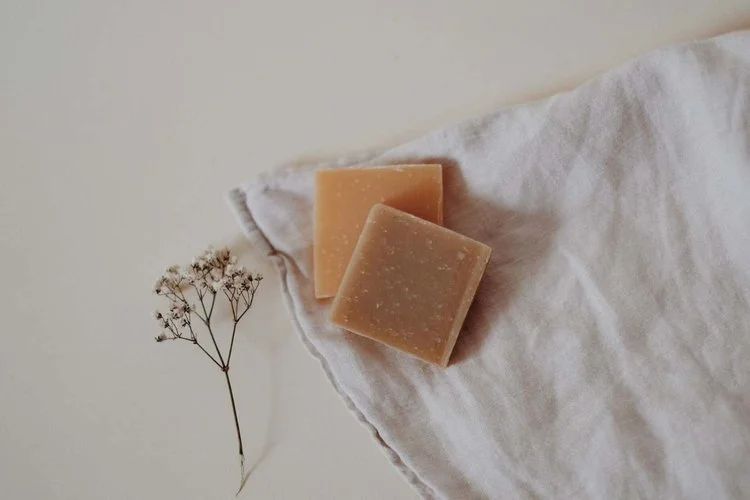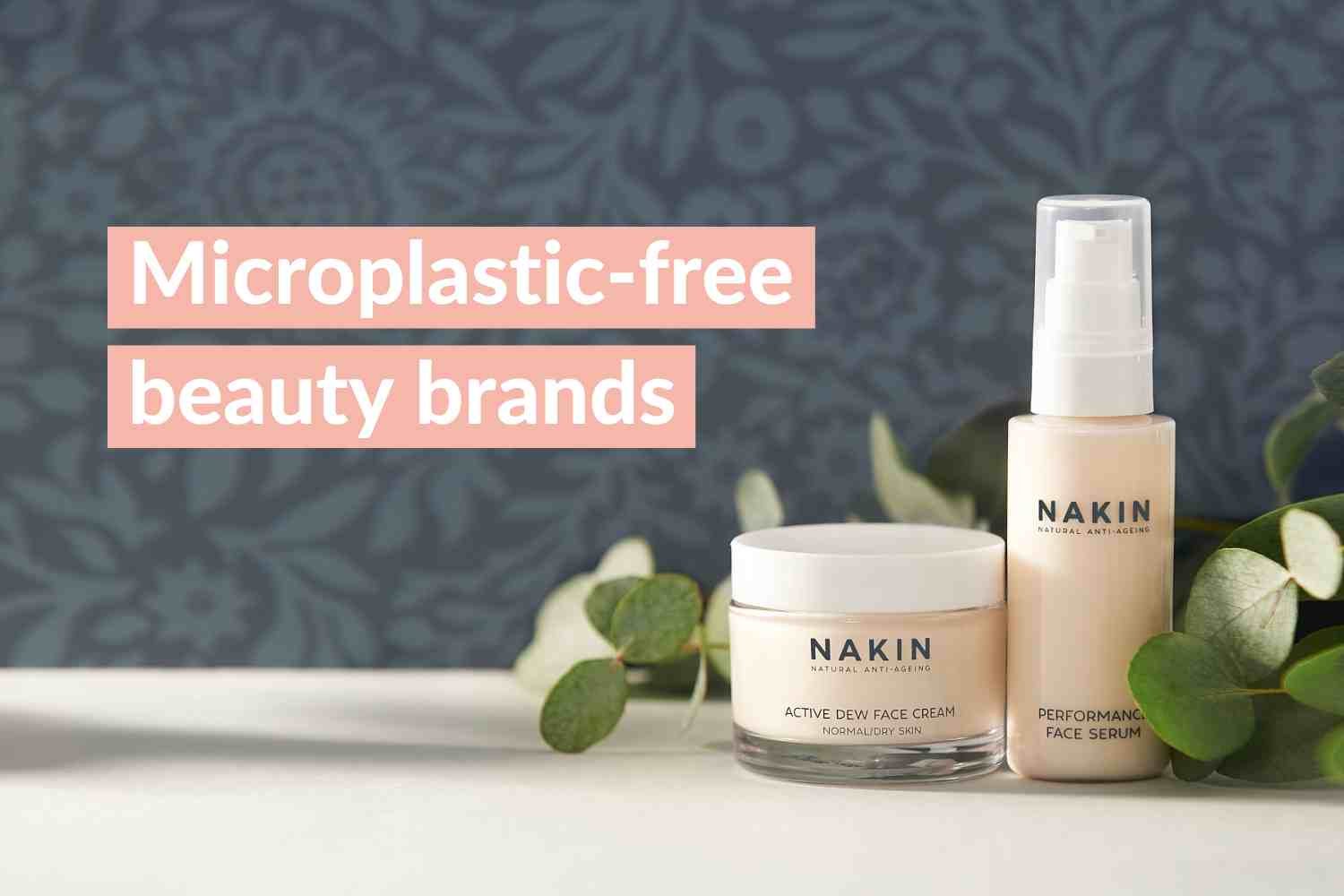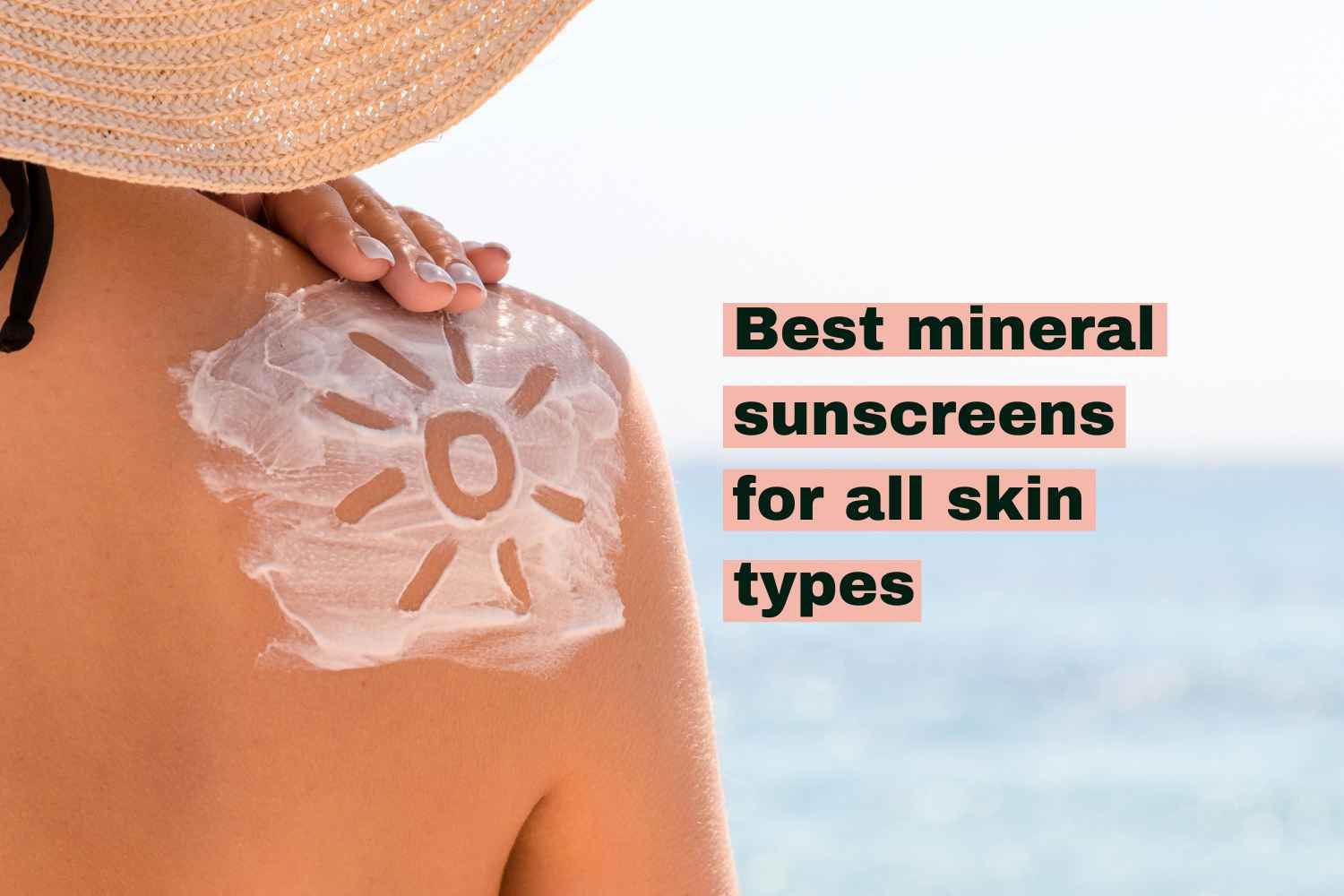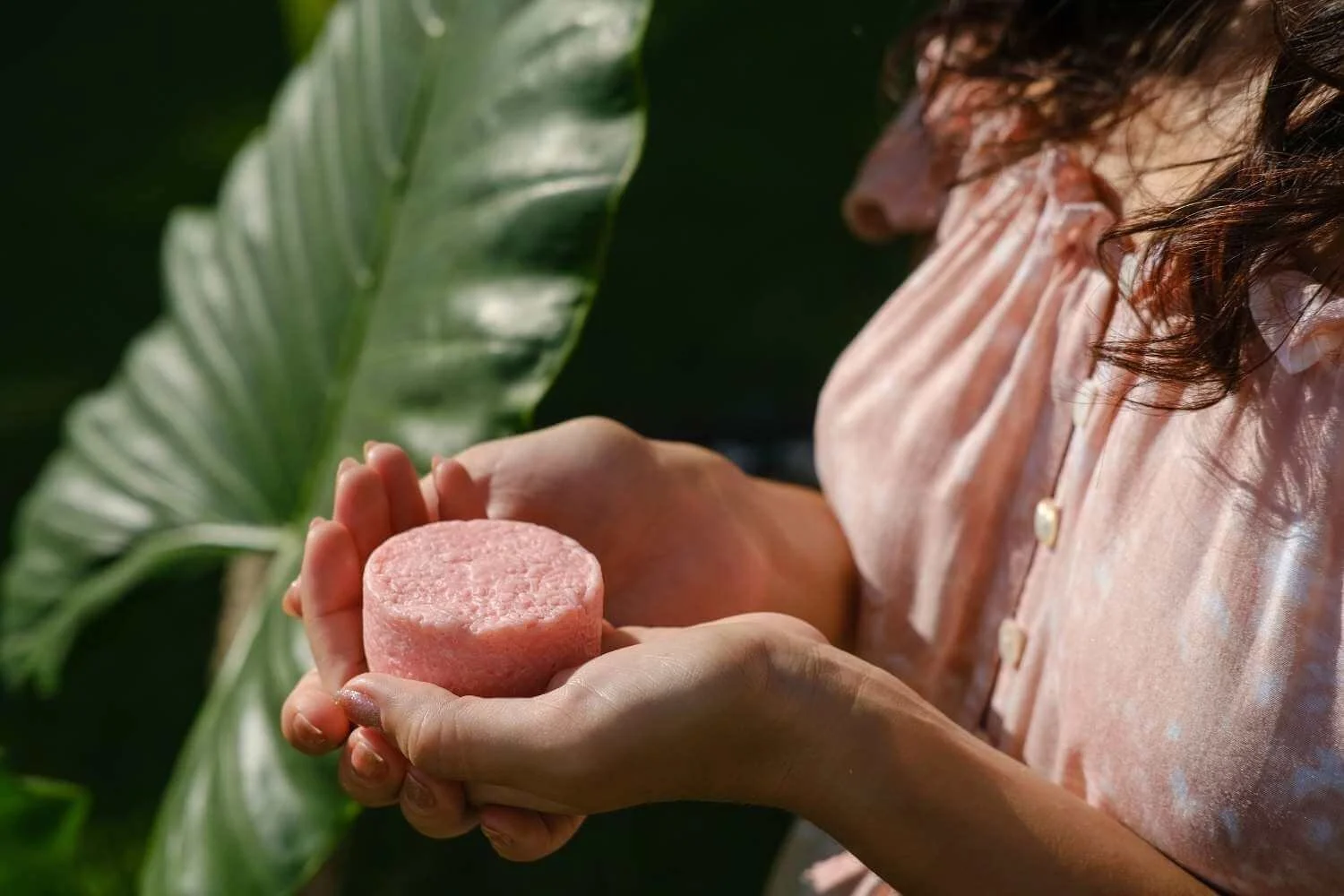10 Eco-Friendly + Non-Toxic Mineral Sunscreens In The UK
Are you looking for non-toxic sunscreens made in the UK or Europe that are eco-friendly and provide broad-spectrum protection? This is the post for you.
The sun is shining which means one thing.
It’s time to slather on your eco-friendly sunscreen and protect your skin from the sun’s harmful rays.
But did you know that many popular sunscreens contain harmful chemicals that harm the environment and our bodies?
Thankfully, there are plenty of eco-friendly sunscreen options that are safe for you and the planet.
In this blog post, I'm sharing the 10 best non-toxic mineral sunscreens in the UK, while also discussing the the toxic effects of traditional sunscreens, and whether everyone needs SPF50.
Whether you're a beach bum or simply enjoy spending time outdoors, switching to an eco-friendly sunscreen is a small but impactful step towards a healthier, more sustainable lifestyle.
My goal is to make sustainable living easier for you by doing all the research. This blog post contains affiliate links to eco-conscious products at no extra cost to you.
10 best eco-friendly mineral sunscreens in the UK
Feel free to scroll down the list and see all ten eco-friendly and natural sunscreen options, or use the following list of shortcuts to help you work out which is best for you. The list is in no particular order.
Odylique - most ethical and best for sensitive skin
Upcircle - ideal for eco-conscious consumers
Shade - for customers who want simple ingredients
Bea - best for darker skin tones
Palm Pine - best tinted natural sunscreen
Organii - SP50 that is suitable for children
Pai Skincare - for a sun-kissed glow
Green People - best for protecting against bug bites
Evolve - best facial sunscreen
Scence - best zero waste option
1.Odylique
Produced: Handmade in a workshop in Sussex using renewable energy.
Packaging: Glass pot with metal lid
Products:
Natural sunscreen (SPF30)100ml
Natural sunscreen (SPF30) 50ml
Broad-spectrum: Yes (Rates PA++++ for UVA)
UV Ingredients: Zinc Oxide (non-nano)
Certifications: Organic, Fairtrade, Cruelty-free
Odylique sunscreen ingredients
Odylique is a woman-owned small family business making eczema-friendly products. They are ideal for people with allergies or sensitive skin as they use no major allergens in their natural products.
Its eco-friendly sunscreen is free from chemical UV filters, animal ingredients, petrochemicals, microplastics, preservatives, silicones, fragrances, colour and common allergens.
Odylique sunscreen review:
This is my favourite sunscreen because it is easy to apply and doesn’t leave a white cast on my white skin.
It’s got a yellow colour to the cream (I believe this is the sea buckthorn oil) and rubs in well without leaving me looking like a ghost!
I have very dry skin so I always use a moisturiser (no matter what sunscreen I use) and Odylique fits nicely into my skincare routine.
I looked at many other reviews to compile a pros and cons list, but unfortunately, I couldn’t find anything from people of colour.
Pros
Very natural. Doesn’t irritate my rosacea
I’m fair-skinned and, have used this for years, and have never been burnt in the hot sun
Doesn’t leave any white cast on my fair skin
Smells like chamomile and sea buckthorn
Odylique changed their plastic tubes to 100% plastic-free jars
Cons
Some people aren’t keen on the smell
A small number of people found it a little bit greasy
May stain light or white clothing (if you get it on your clothes, try rubbing some washing-up liquid into the stain 20 mins before washing)
Where can you buy Odylique sunscreen?
2. Upcircle
Produced: Handmade by a family business in the UK
Packaging: A glass jar with a metal lid - refillable
Products:
Mineral Sunscreen for face (SPF25) 60ml
Mineral Sunscreen for face (SPF25) 20ml
Broad-spectrum: Yes
SPF: 25
UV Ingredients: Zinc Oxide (non-nano)
Certifications: Cruelty-free (leaping bunny), B Corporation, Vegan-certified
Upcircle Sunscreen Ingredients
Upcircle is fragrance-free and rich in antioxidants, like raspberry seed oil, to protect your skin from free radical damage.
This eco sunscreen is dermatologically tested. They claim it absorbs within 15 minutes and the white cast disappears as it soaks in.
Upcircle sunscreen reviews
Reviews for Upcircle are excellent and it has 4.71/5 stars on its website. I haven’t tried this product but I’ve spent ages reading reviews so I can tell you who it works for and who it doesn’t.
Pros
Works well under makeup once it has absorbed
People with dry skin say it works well on top of a moisturiser
Many people said it is easy to apply, leaving a smooth, dewy finish
People with sensitive skin said it caused no irritation or itching
Made using upcycled raspberry oil from the juicing industry
Many white people said it leaves less of a white cast than other mineral brands they’ve tried
Some reviewers said they went on holiday to hot places and did not burn
Cons
Several mixed-race people said it left too much of a white cast on their skin
Some people with oily/combination skin said it made them break out (but other skin types didn’t have this problem)
Needs time to absorb, which isn’t ideal if you’re in a rush
People would prefer it to come in a bigger size
Where can you buy Upcircle sunscreen?
3.Shade
Produced: Female-founded and made in the UK.
Packaging: Metal tin
Products:
All Natural Sunscreen (SPF25) 100ml,
All Natural Sunscreen (SPF25) 15ml
Broad-Spectrum: Yes (Has a PA++++ UVA rating)
UV Ingredients: Zinc Oxide (non-nano)
Certifications: Soil Association organic ingredients
Shade Sunscreen Ingredients
Shade’s natural sunscreen is made from four simple ingredients making it the perfect choice for people who want a non-toxic sunscreen. Shade is fragrance-free and vegetarian (as it contains beeswax). It has confirmed that it does not test on animals.
Shade sunscreen review
Pros
Shade’s eco-friendly sunscreen is thick and needs a bit of extra rubbing in as there’s a bit of a white cast. However, it is not greasy and I have happily used it on myself and my kids for years.
I like that there are only four ingredients and no fragrance. I am prone to dry, sensitive skin and have had no issues. It also works well as a base under makeup.
I like the metal tin which lasts ages and can be reused or recycled.
Cons
When it’s cold, the coconut oil gets solid and the mixture can get quite hard. Rubbing it in warm fingers can help with this.
I expect it would leave an obvious white cast on people with Black or brown skin tones
Where can you buy Shade Sunscreen?
4. Bea Skincare
Produced: A British company, manufacturing location tbc.
Packaging: Recycled plastic pump
Products:
Solar Defence pump 50ml or 100ml
Solar Defence mist spray 50ml or 100ml
Broad-spectrum: Yes (P++++ rating for UVA)
SPF: 30 or 50
UV Ingredients: Nano Zinc Oxide and Titanium Dioxide
Certifications: None
About Bea Solar Defence ingredients
The mineral filter in this natural sunscreen is made using nanoparticles. I know some people prefer to avoid the smaller particles, however, I can’t help but wonder if the smaller size helps reduce the white cast.
This is the EU’s opinion on the safety of nanoparticles.
Bea sunscreen contains plant collagen, making it vegan, and alpha-arbutin to help with skin pigmentation. It is the only sunscreen I can find that has good reviews for all skin tones and does not contain synthetic petroleum derivatives.
Bea Skincare Solar defence review
Bea Skincare is a woman and black-owned business. The founder, a trained skin specialist, has created a mineral sunscreen that doesn’t leave a white cast on darker skin tones and may improve pigmentation.
I haven’t tried it myself, so I’ve scoured the internet for reviews from people with different skin tones and types. Here’s what they think:
Pros
A large majority of people of colour described this as their favourite mineral sunscreen due to the lack of white cast. It has a high number of 5 star reviews.
Many people liked the silky texture and described it as not greasy
A few people said it did not aggravate their eczema or seborrheic dermatitis
Some people said it improved their hyperpigmentation (however, some did not)
Cons
A small number of people with darker skin found the SPF50 gave a very small white cast
Bea Solar Defence is often out of stock
A few people experienced either an allergic reaction or skin irritation after using this sunscreen (possibly the alpha-arbutin)
Some people found this product drying. It may be better to use a moisturiser if you have dry skin
A few people with acne-prone skin found this made them breakout (however many with combination or dry skin did not)
People with oily skin found this a bit greasy. One person said this improved when they stopped using moisturiser first.
Where can you buy Solar Defence Sunscreen?
5.Organii
Produced: Italy
Packaging: Plastic tube
Products:
Sun Lotion (SPF30) 100ml
Sun Milk (SPF50) 125ml
Facial Sun Cream (SPF15) 50ml
Broad-spectrum: Yes
UV Ingredients: zinc oxide + titanium dioxide (non-nano)
Certifications: COSMOS organic + natural, Peta Cruelty-Free, Vegan Society, ICEA, NCS
Organii Sunscreen ingredients
Organii has the most certifications of any brand on this list, and it is also one of two brands that received Ethical Consumer’s Best Buy award.
Organii sunscreen is fragrance-free and tested free from nickel. It contains many organic plant ingredients to leave your skin feeling soft.
Organii sun milk review
Organii’s sunscreen has been designed for babies, children, and adults. As I haven’t tested this product yet, I’ve looked on multiple websites to discover what people like and dislike about this product. The general gist is that people who have reactions to sunscreen found this good for their sensitive skin, and the main complaint was that it can be a bit messy to apply.
Pros:
People with sensitive skin were happy with this product
People felt confident about using non-toxic ingredients on their children due to this product’s excellent credentials and plant-based ingredients
There were no complaints about the sun protection or burning from people who took it on holiday to hot countries
Many people, especially parents, were happy to have found an SPF50 mineral sunscreen
Some people preferred the thinner liquid option for their babies
It doesn’t dry out the skin
Cons:
It’s quite runny and can come out of the tube a bit fast, so you need to be careful opening it
Some parents found the design of the tube impractical as they had to close the lid when putting it down
Like most mineral sunscreens, it can leave a slight white cast. Some people found this went away quickly or after rubbing it in (they did not mention their skin tone so I’m going to assume they were white people).
Some people described it as a bit oily, but many parents bought it again anyway
Comes in a plastic tube
Where to buy Organii sunscreen?
6.Palm Pine
Manufactured: In Portugal
Packaging: recycled aluminium tin
Products:
Pine + Palm sunscreen (SPF50) 50g
Broad-spectrum: Yes
UV Ingredients: Zinc Oxide + Titanium Dioxide (non-nano)
Certifications: in the process of getting certified by Cruelty-Free International and the Vegan Society
Palm Pine sunscreen ingredients
Palm Pine created a waterless sunscreen wax using plant-based and mineral ingredients. It is vegan, contains zero palm oil, and has a subtle tint made from non-toxic iron oxide pigment.
Pine and Palm sunscreen review
Palm + Pine is a woman-founded business. Its goal was to create an eco-friendly sunscreen that doesn’t create plastic waste or pollute the ocean with harmful substances.
Pine and Palm is a new addition to my list and I’m testing it next so stay tuned!
Until then, I’ve roamed the internet looking for people’s opinions of this relatively new natural sunscreen. Here’s what I found:
Pros:
The wax-based formula makes it water-resistant and there are many good reviews from surfers
People say it is good for sensitive skin and hasn’t aggravated their skin problems, like eczema or rosacea
Many people described it as smooth to apply
People like the colour, and nobody complained of a white cast, however, I can’t see any reviews from people of colour
People say it doubles as a concealer and doesn’t settle in the fine lines on your skin
Cons:
It’s on the pricey side for 50g, but people say it lasts a long time
A few people said it feels slightly sticky on their face but there aren’t enough reviews available to work out which skin types it’s not suitable for
Where to buy Palm Pine sunscreen?
7. Green People (Mineral range)
Manufactured: Made in the UK
Packaging: Plastic cylinder tubes, insect repellent tube is made from sugarcane
Products:
Scent-Free Mineral Sunscreen (SPF30) 50ml
Facial For Men Sports+ No.4 (SPF30) 50ml
Sun cream with insect repellent (SP15) 100ml
Mineral Sports+ (SP30) 50ml
Broad-spectrum: Yes
UV Ingredients: Zinc Oxide (non-nano)
Certifications: Soil Association COSMOS, Cruelty-Free International, Vegan Society
Green People Sunscreen ingredients
Last year, Green People brought out a new range of mineral sunscreens, so I have added them to this list.
Please note that only the four products I’ve listed above contain mineral filters, previous products use safer chemical filters.
Green People sunscreens have been dermatologically tested to be kind to sensitive skin. The insect repellent is DEET-free.
All the sunscreens contain natural fragrances from essential oils, except for the one named Scent-Free which has no fragrance.
The mineral range has been formulated without any palm oil derivatives (this was confirmed via email).
Green People Mineral Sunscreen Review:
Many eco-friendly products are marketed towards women and children so it’s nice to see an organic brand creating products for men.
I’ve used a fair few Green People products, including one of their older sunscreens, however, I have yet to try their mineral range. Here are reviews from people who have tested this new range:
Pros:
The insect-repellent sunscreen worked well on children and people with sensitive skin
The insect-repellent sunscreen is suitable for 6 months
People describe the scent-free sunscreen as non-greasy and absorbent
People said the scent-free sunscreen did not irritate their skin
Men and women both like using the Men’s Sport+ sunscreen saying it doesn’t sting the eyes and stays on during running, cycling, and water sports
Cons:
Has a slight white cast when first applied, but it disappears as it absorbs in
Some people said they didn’t like having to spend more time rubbing it in (compared to Green People’s chemical filter sunscreen range)
It’s a shame they didn’t use the sugarcane packaging for most of this range
Insect-repellent sunscreen is quite runny and can come out quickly. Make sure you shake it first and open it carefully.
Where to buy Green People Mineral Sunscreen?
8. Pai Skincare
Produced: In Pai’s London HQ
Packaging: 80% recycled plastic 20% sugarcane tube (can be sent back to them for free to be recycled)
Products:
Broad-spectrum: Yes
UV Ingredients: Zinc Oxide (non-nano) glow also contains titanium dioxide
Certifications: Cruelty-Free International, Vegan Society, Soil Association COSMOS natural
Pai skincare ingredients
The natural shimmer in Pai’s Glow sunscreen comes from mica, which is a mineral dust that adds shine by reflecting the light. Pai’s mica supplier is a member of The Responsible Mica Initiative to ensure ethical sourcing.
Pai Glow Sunscreen is fragrance-free and the Original Sunscreen is lightly scented with mandarin essential oil. Both products are free from petrochemicals and palm oil.
Pai British Summertime Sunscreen Review
This award-winning sunscreen is designed to go on top of your moisturiser and is fine to wear under makeup if you like. The glow range gives you a lovely shimmer that provides a radiant sun-kissed look. I have not tested this product yet, so I’ve looked at reviews from a range of people with different skin types and tones to find out what it’s really like.
Pros:
People liked the original sunscreen with or without makeup, some said it worked well as a primer.
People with lighter skin tones said the white cast fades quite quickly and absorbs within 5 or 10 minutes
Most people said it’s easy to apply and spreads well
The vast majority said this did not make them breakout (only 1 review said it did)
People found Pai sunscreen good for sensitive skin and for sun protection
The glow was described as lovely, natural, or adding a touch of colour to white skin
Cons:
Both products described as not suitable for people of colour. Multiple people with darker skin tones found this gave them a white cast.
A small number people with pale skin also didn’t like the white cast
Some people didn’t like the smell of the original sunscreen (however some people did!)
Some complained that you have to squeeze the tube gently otherwise too much comes out
Some people said the glow was too much for everyday use when running errands, other people said they wanted more of a glow!
1 person with rosacea reacted to the fragrance in glow but had no problems with the original. Another person with rosacea had no issues with the glow sunscreen.
Where to buy Pai Skincare Sunscreen?
9.Evolve Beauty
Produced: Handmade in the UK
Packaging: Sugarcane tube
Products:
Climate Defence Face Cream (SP30) 40ml
Broad-spectrum: Yes
UV Ingredients: Zinc Oxide (non-nano)
Certifications: Cruelty-Free International, Vegan Society, COSMOS Organic, B Corporation
Evolve Sunscreen ingredients
Evolve’s natural Facial Sunscreen contains antioxidants to protect your skin against sun damage and free radicals that cause premature ageing. It contains a natural fragrance and is safe to use during pregnancy.
Evolve Climate Defence Sunscreen review
I reviewed this sunscreen a few years ago, however, Evolve has reformulated it (it is no longer tinted) so I’m now treating it as a different product. I’ve looked at various reviews on multiple sites and this is a highly rated product with most people giving it 4 or 5 stars.
Pros:
The majority of people with white or olive skin tones have described the white cast as minimal
People say it absorbs well, some people with dry skin say it works better under makeup if you let it fully absorb.
Most people say it is easy to spread and not greasy
Lots of people say it works well under makeup
Reviews say the smell is subtle but pleasant
Many people said their skin feels moisturised using this product
Cons:
One person who described their skin tone as “medium” said this sunscreen gave them a white cast.
This sunscreen is expensive, however, people say you only need a small amount so it lasts a long time
Where to buy Evolve facial sunscreen?
10. Scence
Produced: Handmade in Cornwall
Packaging: Paper push up tube (compostable and recyclable)
Products:
Scence balm stick (SPF30) 80g
Broad-spectrum: Yes
UV Ingredients: Zinc Oxide (non-nano)
Certifications: Vegan Society
Ingredients info:
Scence sunscreen ingredients
Scense uses natural and organic ingredients to formulate its skincare products. It is microplastic and palm oil-free. Scence uses fruit oils to add fragrance to its sunscreen. Other products I’ve tried have quite a strong scent, and I’ve personally never experienced irritation on my sensitive skin.
Review of Scence sunscreen
Scence is a small independent business and there are only a small number of reviews of this award-winning product online.
I have used other products by Scence and I like the packaging and scent, however, I find their deodorant a bit tricky to get on when it’s really cold in my house. If you try this product, please let me know your review in the comments.
Pros:
Packaging is easy to use and sustainable
Palm oil-free with minimal ingredients
People said it is easy to apply, rubs in well and doesn’t leave skin feeling oily or greasy
People described its sun protection as good on hot days and on holidays
People described it as good for sensitive or acne-prone skin
Cons:
When it’s cold, the coconut oil may become solid. Holding it against warm skin or rubbing it will help it warm up and apply easier
No information on compatibility with different skin tones is available
Where to buy Scence sunscreen balm?
That’s the end of my list of 10 eco-friendly-mineral sunscreens. Here’s the list again so you can jump back to the ones you liked:
2. Which sunscreens didn’t make this list and why
I get a lot of questions on my product guides about other brands people are curious about. I thought it might be helpful to include why I chose these brands over others.
One individual has inquired why I have not included the European brands using the less harmful chemical filters.
It’s a valid question and the answer is simply that this blog post was made to focus on mineral filters.
I know not everybody gets along with mineral filters, so if you want to know the safer alternatives to oxybenzone, I’ll create a separate article.
Many mineral sunscreens contain petrochemicals or synthetic ingredients
The mineral sunscreen brands that didn’t get included are made using petrochemicals (from fossil fuels) and are not plant-based, naturally derived ingredients (which is my niche!)
They often include microplastic beads, powders, and liquid polymers, such as Nylon-12, Polyurethane-34, Styrene/Acrylates Copolymer, or Polymethyl methacrylate.
I also don’t recommend products that contain PFAS, like PTFE (Teflon) as these forever chemicals are toxic to health and the environment.
Some brands using one or more of these ingredients are:
La Roche Posay
Heliocare
Avene
Environ
Neutrogena
Aveeno
There are also mineral sunscreens that have hidden chemical filters in them
If you bought a mineral sunscreen and later found out it contained hidden chemical filters, you’d be annoyed, right?
I’m not saying all filters are unsafe, but I believe consumers have a right to transparency. This is also risky for people who have allergies or reactions to chemical filters.
Here are some brands advertised as mineral sunscreens that contain chemical filters like Butyloctyl Salicylate, Tridecyl Salicylate, Ethylhexyl Methoxycrylene, and Undecylcrylene Dimethicone:
Hello Sunday
Babyganics
Alba Botanical
Bubble
Medik8
3. mineral and chemical sunscreen - what is the difference?
There are two types of sunscreens, chemical and mineral.
Mineral sunscreens are made from zinc or titanium oxide and sit on top of your skin as a shield.
Chemical sunscreens contain filters that sink into your skin to absorb UV light.
Are mineral sunscreens reef-safe?
Mineral filters, in particular zinc oxide, are considered the most eco-friendly and non-toxic because they don’t bleach coral reefs.
However, research has shown that tiny mineral particles, known as nanoparticles, make sea creatures more likely to be harmed by other contaminants.
For this reason, most eco-friendly brands use “non-nano” mineral filters in their products, but it’s always worth checking.
The only downside is the bigger particles are more likely to leave a white cast on your skin. This is particularly problematic for people of colour so I’ve included a nano option on my list to include everyone.
Read next:
4. Sunscreen FAQs: Understanding sun protection
What is SPF?
This stands for “sun protection factor” and is the amount of protection sunscreen gives from UVB rays. SPF does not protect against UVA rays.
The SPF number tells you how long it would take the sun’s UV radiation to burn your skin versus the amount of time without any sunscreen.
So with SPF 15, it would take you 15 times longer to burn than it would if you weren’t wearing sunscreen.
If you burn very quickly, you will need a higher SPF than somebody who hardly burns.
It is still recommended to reapply sunscreen every 2 hours.
What is broad-spectrum sunscreen?
SPF only refers to UVB rays. When sunscreen is broad-spectrum, it means it protects you from both UVA and UVB rays.
All the sunscreens on my list have broad-spectrum protection.
What is the difference between SPF30 and SPF50?
SPF50 sunscreens tend to be more expensive and are harder to apply. You may wonder if the higher factor is better or much different from SPF30.
The short answer is that it depends on your skin type.
It would be better to have a low SPF sunscreen that is broad spectrum (protects from UVA, too) than to have a high SPF that does not protect against UVA.
The EU also advises companies not to advertise over SPF50 because it sounds like SPF100 would have double the protection, which is misleading to consumers.
SPF PERCENTAGE CHART:
SPF15 = blocks 93% of the sun’s rays
SPF30 = blocks 97% of the sun’s rays
SPF50 = blocks out 98% of the sun’s rays
SPF100 = blocks out less than 100% of the sun’s rays
(no sunscreen will block out 100%)
So, is SPF50 worth it?
According to The British Skin Foundation, many people will find that SPF30 provides good protection if it is reapplied throughout their time in the sun.
However, if you have skin type 1 (blue eyes and red or blonde hair) and burn easily or have a history of skin cancer, the extra 1% protection is important and you should choose SPF50.
They also recommend putting factor 50 on children.
No matter what factor you use, you should reapply sunscreen every 2 hours (and more often if you’ve been in the water).
How do you know if sunscreen protects from UVA rays?
In the UK and Europe, you can tell if sunscreen has UVA and UVB protection by looking for the words “broad spectrum” and the letters UVA inside a circle.
The problem with Boot’s 5-star UVA rating
In 2011, the U.K. health and beauty chain, Boots, banned low-price competitors from using its widely known UVA star rating system on their sunscreen bottles.
This means, that if you want a 5-star UVA-rated product, you can only buy a brand that Boots has permitted to use its trademarked rating.
No organic, eco-friendly sunscreen brands are allowed to use the Boots UVA rating so they use the EU’s UVA seal instead.
Have you made the switch to eco-friendly sunscreen? What’s most important to you when deciding what to buy?

























